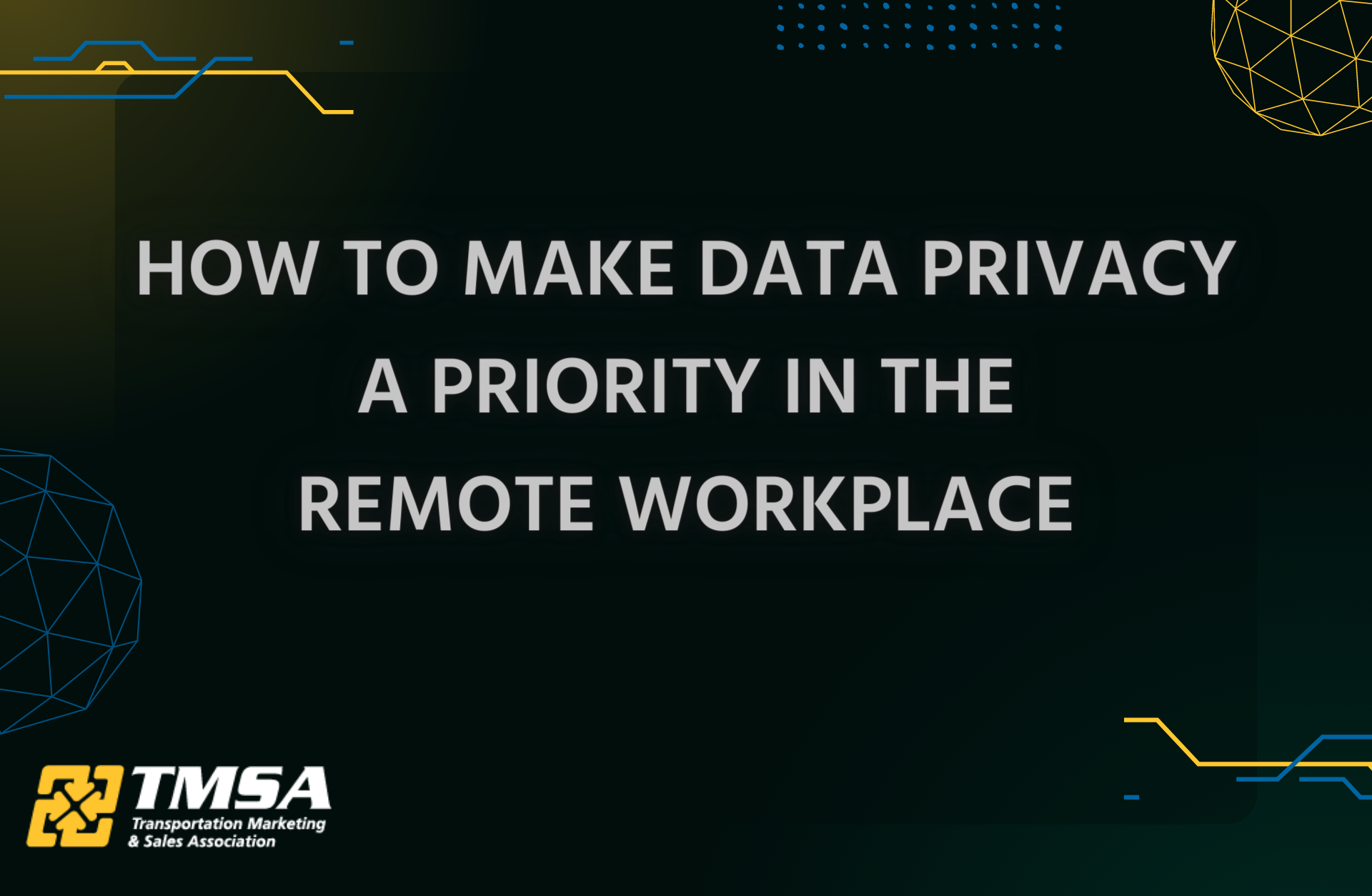
Written By: Patsy Murphy | Jan 30, 2023 10:32:31 AM
Saturday was “Data Privacy Day” and while some social media holidays seem silly, we actually think this one is really important.
Data privacy has always been significant, especially in the current digital economy. Almost all daily activities can be done virtually – from grocery shopping to how we conduct business. In the last few years, remote work has become increasingly popular; as of 2022, 16% of companies worldwide operate entirely remotely.
The remote workplace has become the new normal, which has led to many opportunities and its fair share of challenges, including data privacy. As we adapt to the virtual marketplace, so must our cyber policies to protect valuable customer data.
Here are three data protection tips to implement within your company:
Issue a Remote-Work Data Security PolicyFirst and foremost, ensure that all devices utilized by team members have updated anti-virus and email scanning software. Common cyber-attacks occur through phishing emails to gain access to secure information. Through these fraudulent emails, hackers attempt to make the recipient download malicious software (malware) on their device.
The remote-work data security policy should include that confidential and proprietary information must remain confidential. No outside entities or individuals should access, view, or copy said information. Another tip is always to utilize a secure internet connection. Many data breaches are due to employees accessing work data on a nonwork device connected to an unsecured network.
An IBM and Ponemon Institute report states that in 2022, the average cost of a data breach rose to an all-time high of $4.35 million. Data breaches are costly to a company’s bottom line and can be even more damaging to its reputation. Issuing a remote-work data policy will help combat data breaches, saving your company money and bolstering its reputation in the long run.
Centralized Data Governance Strategy
Data is a valuable asset, and every team member must treat it as such. This is why a data governance strategy is necessary for organizations maintaining a Customer Relationship Management (CRM) database, such as HubSpot or Salesforce. According to TMSA’s Marketing and Sales Metrics Study, approximately 90% of logistics companies utilize CRM software, and 35% of respondents state that their CRM and marketing automation software are under one platform.
The great news is that CRM systems have robust capabilities for customization, allowing companies to custom-tailor parameters and guidelines across departments in a remote environment. Some helpful CRM tools are permission-level access controls for team members to regulate editing and visibility and field requirement settings to ensure you have the data you need to optimize your service. A centralized data governance strategy maps out how data is handled within your company, setting the standard for data quality, and protecting it from potential threats.
Develop a Security Culture
A strong security culture is not a set-it-and-forget-it solution. It is ingrained across your company through daily activities and service offerings. Companies working in a remote environment rely heavily on their people to combat potential threats. A security culture can be achieved through the company’s values, continuous training, and employee recognition. You can promote learning by setting aside time for team members to complete security awareness training quarterly. This is a defense mechanism that protects not only your team members, but also your customers. Another great way to practice security culture is to reward and recognize the top stars at your company for maintaining the culture. A rewards program and praise can go a long way to motivate people to do the right thing.
As logistics marketers and salespeople, we are constantly entrenched in data. We track and maintain customer data, industry benchmark standards, and companywide performance. Data is at the forefront of all business decisions. Maintaining high-quality data and keeping it out of the wrong hands is crucial. With more companies embracing remote workplaces and strict data protection regulations on the horizon for 2023, now is the time to make data privacy a priority.
Tags: Strategy, Digital, TMSA, CRM/Technology